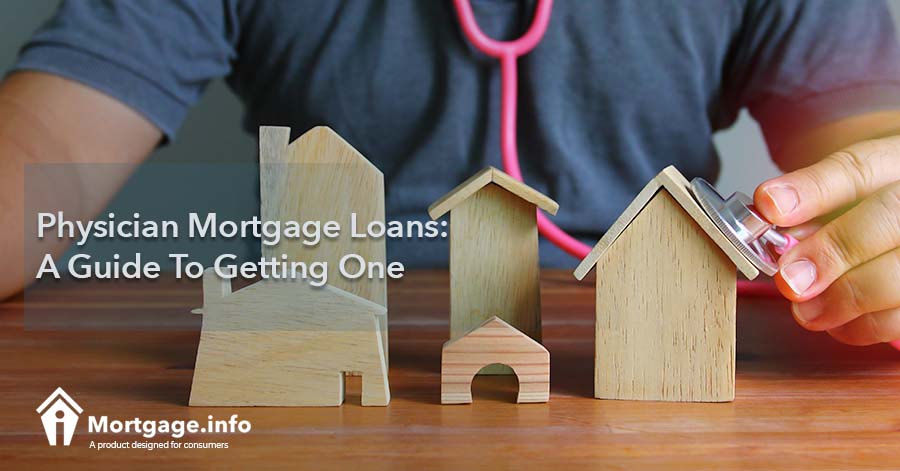
New physicians are in a good place in their lives because they are at the start of a promising career. The problems occur when these new physicians want to purchase a home. They have every factor counting against them in most cases including:
- A large amount of debt
- No history of consistent income
- No consistent employment history
- Little credit or poor credit because of the large amount of student loans
The good news is that physician mortgage loans help new doctors avoid these problems and provide them with a great mortgage product.
The Reason for Physician Mortgage Loans
Many banks offer physician mortgage loans because of the viable option doctors play in the role of home financing. Yes, starting out, they do not have the best track record and might look like a large risk, but a few years down the road, they are a great risk. Lenders also use the opportunity to provide the doctor loan in order to develop a relationship with the doctor and offer him other products down the road.
The banks that offer these loans understand that doctors do not have a credit history or income history. They also understand that their credit score might not be where they would like it for a traditional loan. Banks do understand, however, that with an employment contract a doctor’s earnings potential is quite high and that in a short amount of time they will have a much better financial situation on their hands. Doctors have a great chance at not only making their payments on time, but also paying their loans off early, putting the bank in a better situation overall.
Who is Eligible?
Eligibility for the physician loan includes a long list of potential people, including:
- Medical residents
- Attending physician
- Dentists
- Veterinarians
- Specialty doctors
Basically, any doctor with an employment contract becomes eligible for the program. Doctors that began their own practice can qualify with as little as six months’ worth of an income history as opposed to the typical 2-year history conventional loans require.
How the Physician Loan Works
The physician loan, which usually amounts to much higher than a conventional loan, has very few requirements. In general, you do not need a down payment and you do not have to pay private mortgage insurance on this loan. Most lenders also provide you with special underwriting guidelines pertaining to your student debt. Most doctors start out their careers with a large amount of student loans on their back. You can likely find a lender that only considers the loans which are due and payable right now as a part of your debt ratio.
You might wonder how lenders can get away with these “different” guidelines. The physician mortgage loan is not a conventional loan – it is a loan the lender keeps on its own books. Fannie Mae or Freddie Mac do not purchase the loan. This way the lender can create the guidelines they are comfortable offering you.
Who Pays the Closing Costs?
Every loan has closing costs, no matter the loan type. The closing costs are what pay for the lender’s work to get the loan closed. With physician mortgage loans, you have two options: you can pay the closing costs yourself or you can have the lender pay them. If the lender pays them, they will give you a higher interest rate, which is something to keep in mind depending on how long you plan on keeping the loan.
Applying for the Physician Mortgage
Applying for the physician mortgage is much like applying for any other loan. You need to provide the lender with:
- Personal identifying information and residency information
- Proof of your employment if you already work or your offer letter for future employment
- Current debt information, including student debts
- Asset statements from any accounts you currently hold, especially if you will put money down on the home or pay the closing costs yourself
- Information regarding the property you plan to purchase if you already found one
Researching your Options
There are many options for physician mortgage loans, so you do have the chance to shop around. When you do, ask about the fees they charge as well as what they require. Because this program works based on what the lender requires, you might find very different requirements from lender to lender. Another important question to find out is whether there are any penalties for paying the loan off early. This is important if you think you will pay the loan down or completely off early or if you know you will move in the near future.
The physician mortgage loans give you the opportunity to purchase a home before you have two years of employment behind your back. There are many ways to make this loan work for you, even if you have a large amount of debt from your student loans. Talk to different lenders to determine your options and then research the program available to you very carefully.
